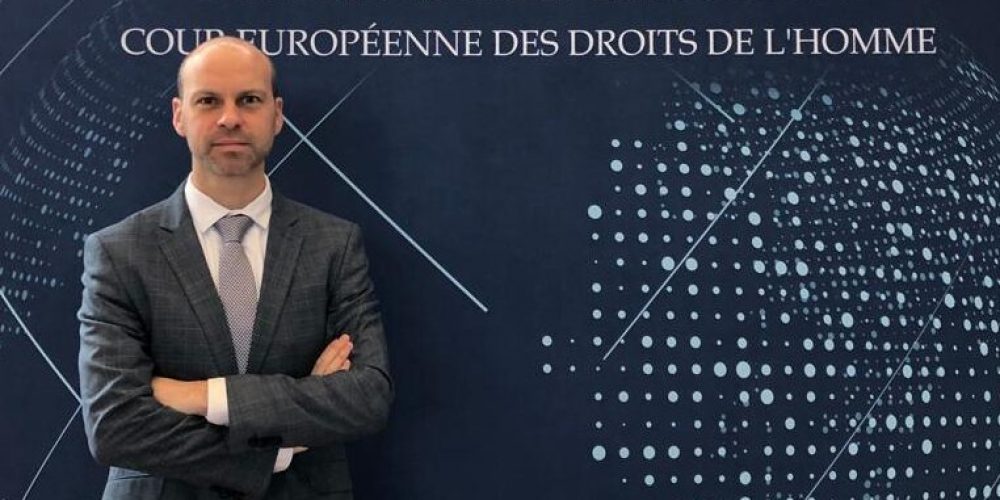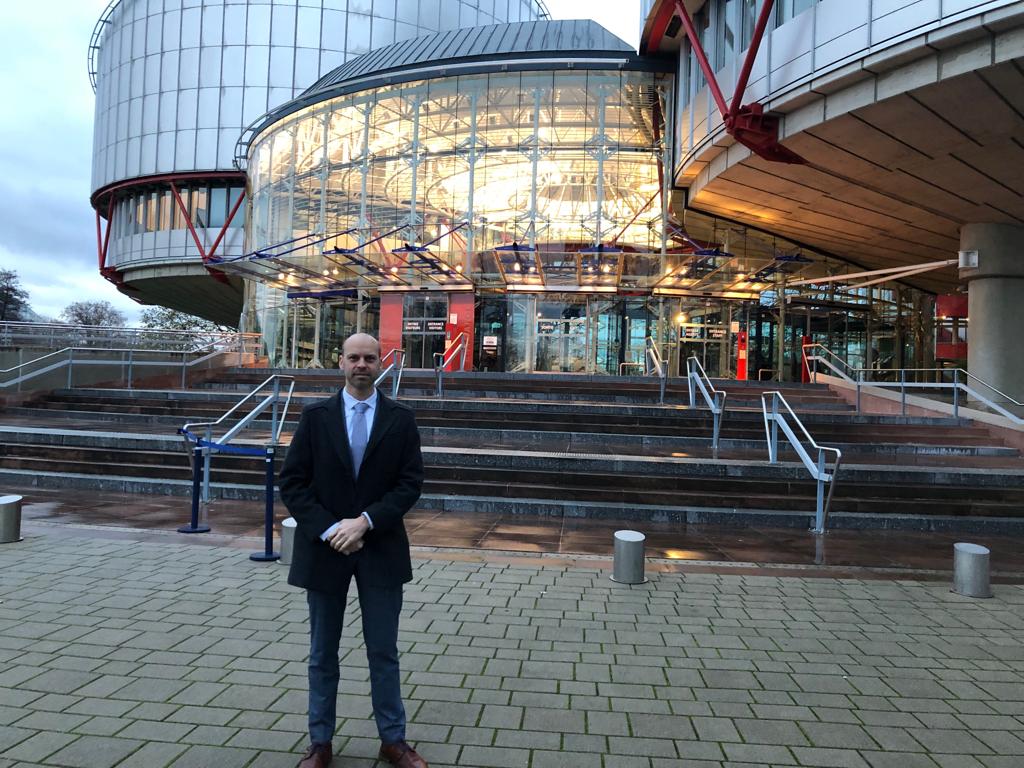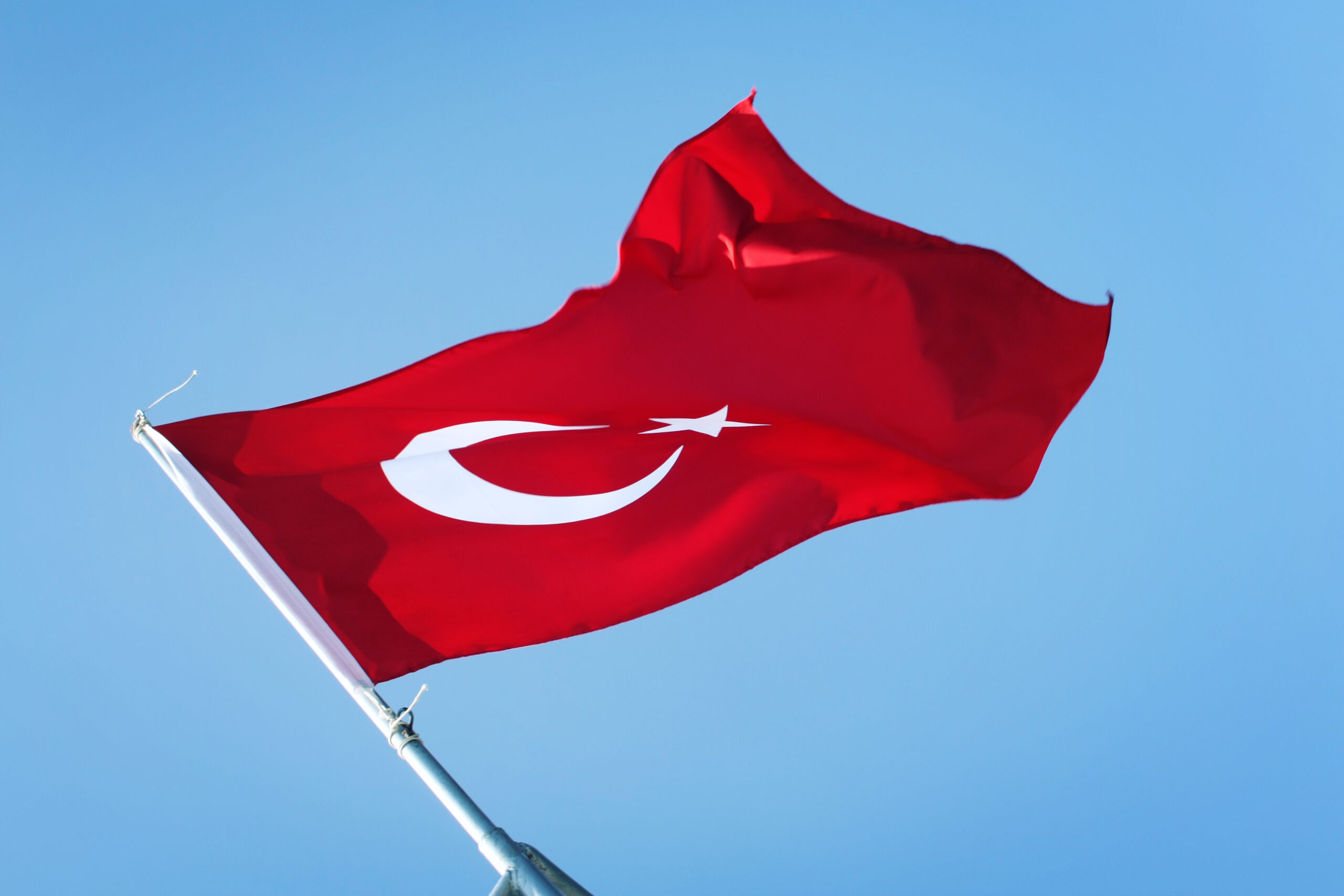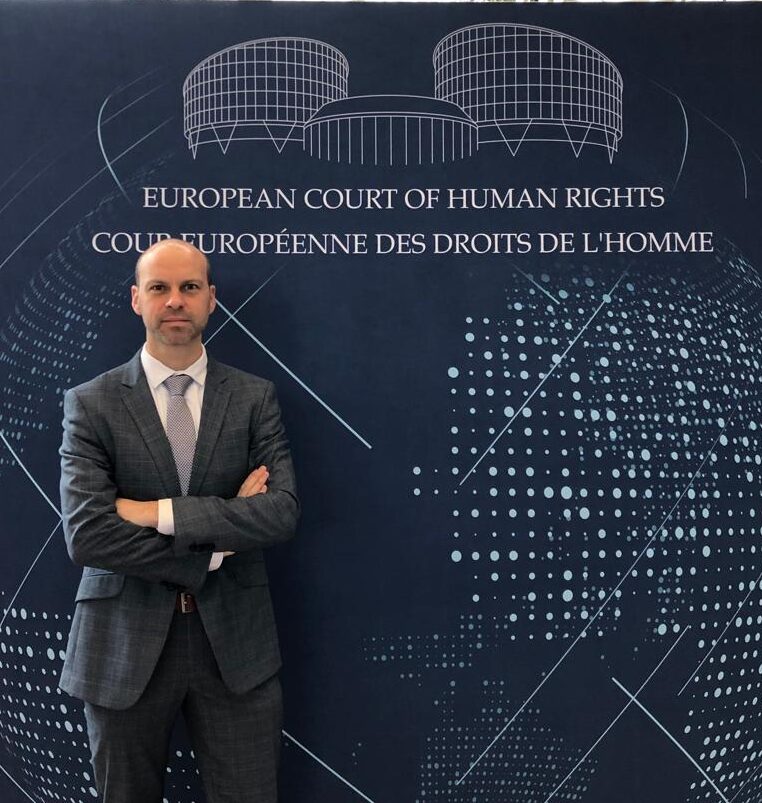Court in Türkiye issues decision supporting the government on cases banning foreign Christian workers from the country under “N-82” codes designating them “risks to national security“
Lies weiterEuropas höchstes Menschenrechtsgericht bestätigt Recht auf Leben und Schutz vor assistiertem Suizid
- Der Europäische Gerichtshof für Menschenrechte weist die Klage des ungarischen Staatsbürgers Dániel Karsai ab, der sich mit ärztlicher Assistenz selbst töten wollte.
- Das Urteil bestätigt das Recht von 46 Europäischen Staaten (darunter Deutschland, Schweiz und Österreich) ihre Bürger vor Euthanasie und assistiertem Suizid zu schützen.
- ADF International intervenierte in dem Fall und argumentierte, dass Staaten die Pflicht haben, das Recht auf Leben zu schützen. Denn: es gibt kein „Recht zu sterben“.

Straßburg (13. Juni 2024) – Der Europäische Gerichtshof für Menschenrechte hat das Recht auf Leben gestärkt. Das Gericht wies eine Klage ab, die darauf abzielte, die assistierten Suizid in Ungarn zu erzwingen. Der ungarische Staatsbürgers Daniel Karsai, der an einer fortschreitenden neurodegenerativen Krankheit leidet, hatte gegen Ungarn und dessen Verbot von Suizidbeihilfe geklagt.
"Wir fühlen mit Herrn Karsai und beten dafür, dass er die bestmögliche Behandlung bekommt. Aber das von ihm vor Gericht angestrebte Ergebnis hätte letztlich viele Leben gefährdet. Ein sogenanntes ‚Recht zu sterben‘ gibt es nicht und darf es nicht geben"
- Jean-Paul Van De Walle, Rechtsanwalt ADF International
„Wir begrüßen die heutige Entscheidung des Europäischen Gerichtshofs für Menschenrechte, die den grundlegenden Lebensschutz in Ungarn aufrechterhält. Wir fühlen mit Herrn Karsais und beten dafür, dass er die bestmögliche Behandlung bekommt. Aber das von ihm vor Gericht angestrebte Ergebnis hätte letztlich viele Leben gefährdet. Ein sogenanntes ‚Recht zu sterben‘ gibt es nicht und darf es nicht geben„, sagte Jean-Paul Van De Walle, Legal Counsel bei ADF International und leitender Anwalt in dem Fall.
ADF International intervenierte in dem Fall. In dem Schriftsatz hieß es: „Die Streichung solcher Bestimmungen aus dem Gesetz schafft ein gefährliches Szenario, in dem Druck auf schutzbedürftige Menschen ausgeübt wird, ihr Leben zu beenden, aus Angst (ob gerechtfertigt oder nicht), eine Belastung für Angehörige, Betreuer oder einen Staat zu sein, dem es an Ressourcen mangelt.“
Gericht: Keine Verpflichtung, „Zugang zu assistiertem Suizid zu gewähren“
In seiner Entscheidung kam das Gericht zu dem Schluss, dass es, wie von ADF International argumentiert, „keine Grundlage für die Schlussfolgerung gibt, dass den Mitgliedstaaten geraten wird, geschweige denn, dass sie verpflichtet sind, Zugang zu assistiertem Suizid zu gewähren“ (§ 143)
Dr. Felix Böllmann, deutscher Anwalt und Leiter der europäischen Rechtsabteilung bei ADF International, sagte: “Das Urteil aus Straßburg ist deutlich: Kein Staat muss assistierten Suizid legalisieren. Das Bundesverfassungsgericht hat 2020 die Rechtsprechung des EGMR sehr einseitig interpretiert. Verbote von Euthanasie und assistiertem Suizid sind im Einklang mit dem international garantierten Recht auf Leben.”
Weitere Informationen finden Sie hier (auf Englisch).
Countries cannot be forced to introduce assisted suicide, rules Europe’s top human rights court
- European Court of Human Rights rules in favour of Hungary’s right to uphold legal protections prohibiting assisted suicide; rejects challenge brought by Hungarian national seeking to end his life due to progressive neurodegenerative condition.
- Ruling affirms the right of 46 member states of Council of Europe to maintain laws protecting life.
- ADF International intervened in case, arguing that states have an obligation to protect the right to life, there is no “right to die”.

Strasbourg (13 June 2024) – The European Court of Human Rights has upheld the right to life by striking down a challenge seeking to permit assisted suicide in Hungary. Hungarian national Dániel Karsai, diagnosed with a progressive neurodegenerative condition, had sought to undermine Hungary’s legal protections for life by challenging its ban on assisted suicide.
“Instead of abandoning our most vulnerable citizens, society should do all it can to provide the best standards of care."
- Jean-Paul Van De Walle, Legal Counsel and leading lawyer on the case for ADF International
In its decision, the Court affirmed that prohibition of assisted suicide is in line with the country’s obligations under international law to protect life. Additionally, as the court pointed out, “the majority of the Council of Europe’s member States continue to prohibit” euthanasia and related practices (§ 165).
“We applaud today’s decision by the European Court of Human Rights, which upholds Hungary’s essential human rights protections. Although we deeply empathize with Mr. Karsai’s condition and support his right to receive the best care and relief possible, it is clear from other jurisdictions that a right to die quickly becomes a duty to die. Instead of abandoning our most vulnerable citizens, society should do all it can to provide the best standards of care,” said Jean-Paul Van De Walle, Legal Counsel for ADF International.
ADF International, along with UK-based NGO Care Not Killing, intervened in the case of Karsai v. Hungary, arguing that Hungary’s legal prohibition on assisted suicide must be upheld in line with the obligation under the European Convention on Human Rights (Article 2) to protect the right to life.
Court: States are not required “to provide access” to assisted suicide
In its submission to the Court, ADF International highlighted the inevitable abuses that ensue when legal protections for the right to life are eradicated. The brief explained: “Removing such provisions from law creates a dangerous scenario where pressure is placed on vulnerable people to end their lives in fear (whether or not justified) of being a burden upon relatives, carers, or a state that is short of resources.”
The court held, as submitted by ADF International, that there is “no basis for concluding that the member States are thereby advised, let alone required, to provide access” to assisted suicide. (§ 143)
Seeking to legalize assisted suicide
Karsai, 46, wished to resort to assisted suicide before his physical condition further deteriorates. Hungary protects the lives of its citizens, including the vulnerable, by criminalizing the act of assisting somebody to end their life, whether the act is committed in Hungary or abroad. Mr. Karsai maintained that if he were to pursue assisted suicide outside of Hungary, the Hungarian Criminal Code would apply to anyone assisting him.
The ruling in Karsai v. Hungary confirms the 2002 decision made by the ECHR in Pretty v. UK, which involved a woman with ALS. Back then, the Court similarly ruled that the British ban on assisted suicide did not violate the Convention and was designed to prevent abuse of the vulnerable.
In today’s decision, the Court noted that “it is part of the human condition that medical science will probably never be capable of eliminating all aspects of the suffering of individuals who are terminally ill” (§ 158). However, it emphasized that “this heightened state of vulnerability warrants a fundamentally humane approach by the authorities to the management of these situations, an approach which must necessarily include palliative care that is guided by compassion and high medical standards” (ibid.).
Legalisation leads to abuses
“Worldwide, only a tiny minority of countries allow assisted suicide. Wherever the practice is allowed, legal ‘safeguards’ are insufficient to prevent abuses, proving most harmful to vulnerable members of society, including the elderly, the disabled, and those suffering from mental illness or depression. Suicide is something society rightly considers a tragedy to be prevented and the same must apply to assisted suicide. Care, not killing must be the goal we all strive towards,” Van De Walle explained.
ADF International argued in its brief that there is no so-called “right to die” but, in fact, a clear right to life. This position, in line with both European and international human rights law, underscores the dangers that would ensue from forcing Hungary to allow assisted suicide, highlighting that the intentional taking of human life can never be safe.
The European Court of Human Rights also recognised these dangers in the October 2022 ruling in Mortier v. Belgium, in which the the Court found that Belgium violated the right to life in the circumstances surrounding the euthanasia of Godelieva De Troyer.
As argued in ADF International’s intervention: “Despite alleged ‘safeguards’ and a ‘strict’ legal framework, young adults are euthanised because of ‘incurable depression,’ elderly people because of symptoms related to ageing, prisoners because of lack of access to appropriate mental health care or because of psychological suffering, twins because of becoming blind – to mention only some examples, among many others.”
Euthanasia and assisted suicide widely prohibited and rejected as “unethical”
Of the 46 Member States of the Council of Europe, only six have legalized assisted suicide. Legislators in the vast majority of countries have rejected the practice. The World Medical Association consistently and categorically has rejected the practice of euthanasia and assisted suicide as unethical. Countries that have legalized euthanasia now allow the intentional killing of children, those who are physically healthy, and those who have not given their consent.
In Resolution 1859 (2012), the Parliamentary Assembly of the Council of Europe stated unequivocally that: „Euthanasia, in the sense of the intentional killing by act or omission of a dependent human being for his or her alleged benefit, must always be prohibited.“
“Once we as a society open the doors to intentional killing, there is no logical stopping point. How do we distinguish between the person we talk down from the bridge and the person we let die at the hands of their doctor? The state is obligated to protect the fundamental value of human life. We should not set in motion legal changes that undermine this obligation to the detriment of all of society,” noted Van De Walle.




